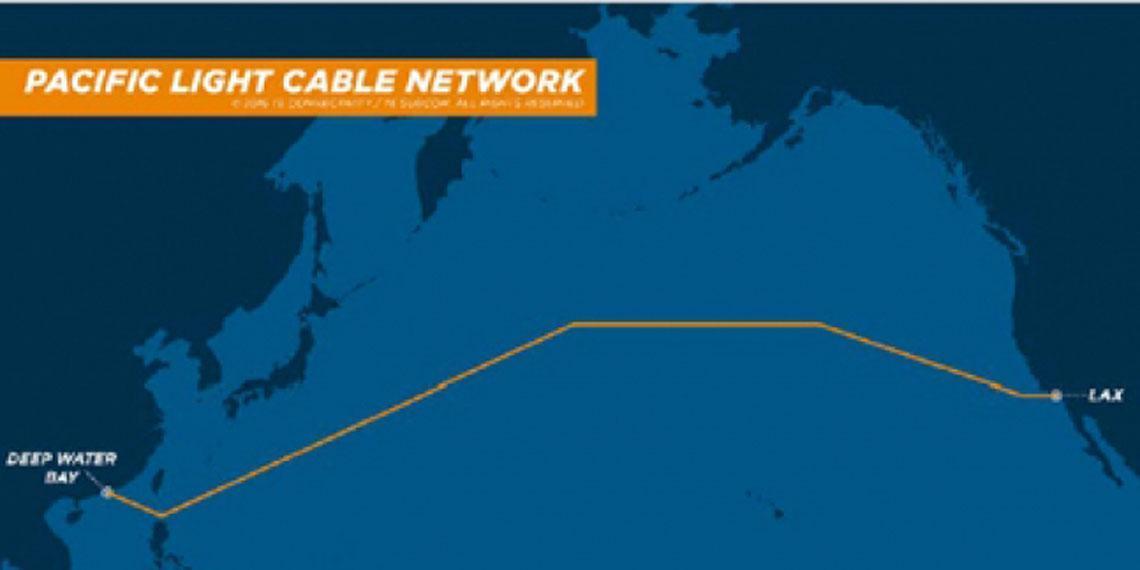TE Connectivity has announced that its subsidiary, TE SubCom, will build a new submarine cable linking Los Angeles and Hong Kong along with Facebook, Google, and Pacific Light Data Communication Co (PLDC).
TE SubCom said the 12,800 km transpacific Pacific Light Cable Network (PLCN) would 'provide the first direct undersea route between Hong Kong and Los Angeles with ultra-high capacity transmission.'
'Scheduled for commercial launch in summer of 2018, PLCN will include TE SubCom's C+L technology, a major step forward in available cable transmission capacity that effectively doubles the available bandwidth and capacity per fiber pair over a traditional C-band-only designed system,' TE SubCom said. 'Once completed, PLCN will be the highest-capacity transpacific route.'
TE SubCom described PLDC as 'a new company located in Hong Kong, the heart of Asia [that] is set to become a leading regional broadband communications service provider.'
What it did not say is that TE SubCom is part owner of PLDC and, it seems, when the company was launched last November, it was news to Facebook. In a blog post on LinkedIn, Steve Grubb, from Global Optical Engineering at Facebook, wrote about his invitation to the launch of PLDC. He described the company as 'a subsidiary of China Soft Power Technology Holding Limited (CSPT), and TE SubCom,' saying it had announced plans to build the PLCN cable.
'It shocked me when I got the invitation for the event,' Grubb said. 'I have been thinking who will be the next player to participate in submarine cable games. I though it might be Amazon, Hurricane Electric, Baidu, Alibaba or Tencent, which will follow Google, Facebook and Microsoft to invest in submarine cable systems. I never expected such an invader.'
According to Grubb, CSPT had said it would build and own the cable itself. He reported its features as being five fiber pairs, ready for service in early 2018 and a total cost of $US400m.
TE SubCom's announcement confirmed the ready for service date but gave no indication of costs. It suggested that PLDC has plans that extend well beyond this first cable. It quoted PLDC chairman, Mr Wei Junkang, saying: ""We envision this deployment as the initial step in PLDC's construction of a global network.""
He added: 'It is certainly gratifying that global technology companies like Google and Facebook have become co-investors in PLCN. It is a strong signal that PLCN will be trusted to address the capacity needs for internet and international communications services throughout the Pacific Rim.'





